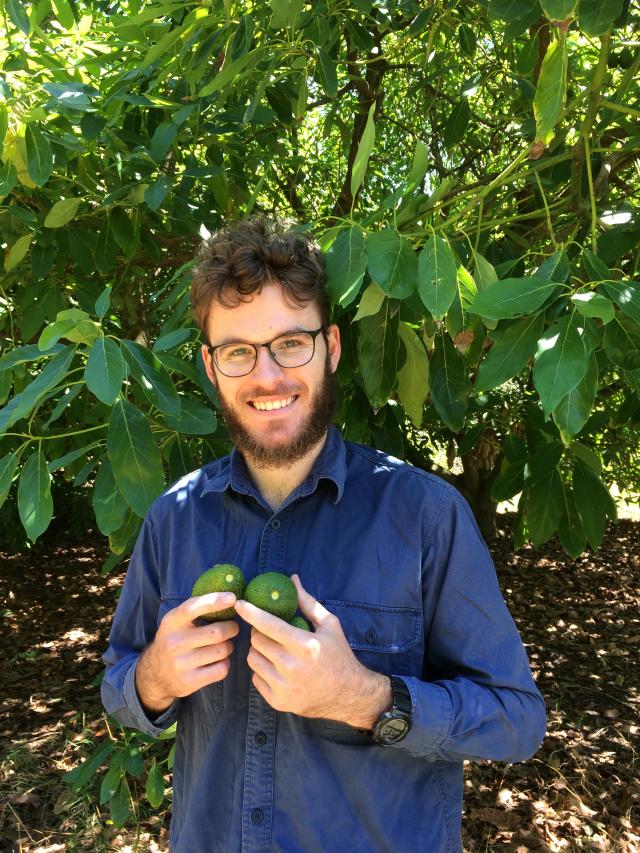New researcher for WA avocado industry
Avocados are a popular food, with an average of 3.5 kilograms of avocado per person consumed annually.
The Western Australian industry, located mainly in the Manjimup/Pemberton area, has grown from an output of 3053 tonnes in the 2007/08 financial year to more than 19 000 tonnes in 2017/18.
There are plenty of young trees that have not yet borne fruit, so production is expected to rise.
The Department of Primary Industries and Regional Development (DPIRD) recently commenced a three-year Avocado Capacity Building - WA project, funded by the Horticulture Innovation Australia.
DPIRD research officer Declan McCauley has been appointed to lead the project. He graduated from the University of Western Australia in 2017 with a Bachelor of Science with First Class Honours, majoring in Agricultural Science, and has worked in the DPIRD/Murdoch University Barley Breeding program as a technician and in the DPIRD Doubled Haploid lab.
Having grown up in Carabooda surrounded by vegetable farms Declan always wanted to contribute to the horticulture industry.
The project aims to increase avocado yield and foster new communication networks for research and extension in WA.
A research paper from the 1980’s set the benchmark for avocado yield as 30 tonnes per hectare - this was derived from comparing the energy value of an avocado to an apple and computing the yield based on a high yielding 100 tonne per hectare apple crop (Wolstenholme, 1987).
The reason for the lower yield is that avocado fruit contains much more energy than apple fruit.
Thirty tonnes per hectare is considered achievable in WA - the difficulty will be in achieving that every year.
Considerable research has been undertaken in this field but there are areas that require more research. Irregular bearing, the phenomenon whereby yields vary over the years with no underlying pattern, not alternate bearing in which yields vary on a two year basis, has not received as much attention as it deserves.
The yield component of the project will have two primary aims:
- Guided adoption of best practice research will be the principal extension activity - the project will assist growers to find and adopt best practice research. Research includes but is not limited to pollination, pruning, growth regulators, mulching and relatively new varieties to replace ‘Hass’.
- Understanding irregular bearing; while a component of irregular bearing is due to certain production practices, these practices are expected to be improved to an acceptable level by fulfilling aim 1. What isn’t known is why so many fertilised fruitlets drop off after they have attained a size of 4.4mm. Understanding this is required to improve yield. Note: This is not summer fruit drop which is more related to production practices (see aim 1).
To facilitate these aims and achieve uptake by the avocado industry, effective communication is a high priority. Growers will soon be able to access information on high quality best practice cultivation research on the DPIRD website.
Project staff will collaborate with researchers from Queensland and other states to maximise benefits to the WA avocado industry from research undertaken in other avocado growing regions of Australia.
The intention is to share information and encourage projects run from other states to have WA based activities; in 2017/2018 WA represented 25 per cent of all Australian avocado production, justifying this aim.
Research findings from the project will be available on the Australian Avocado Best Practice Resource (BPR) website and growers are encouraged to sign-up for the free service.
The project is hoped to achieve greater uptake of best practice research and contribute to the knowledge of irregular bearing, resulting in an improvement in avocado yield in WA.
For more information on the project, contact Declan McCauley at the DPIRD Manjimup office on +61(0)8 9777 0184 or email Declan

